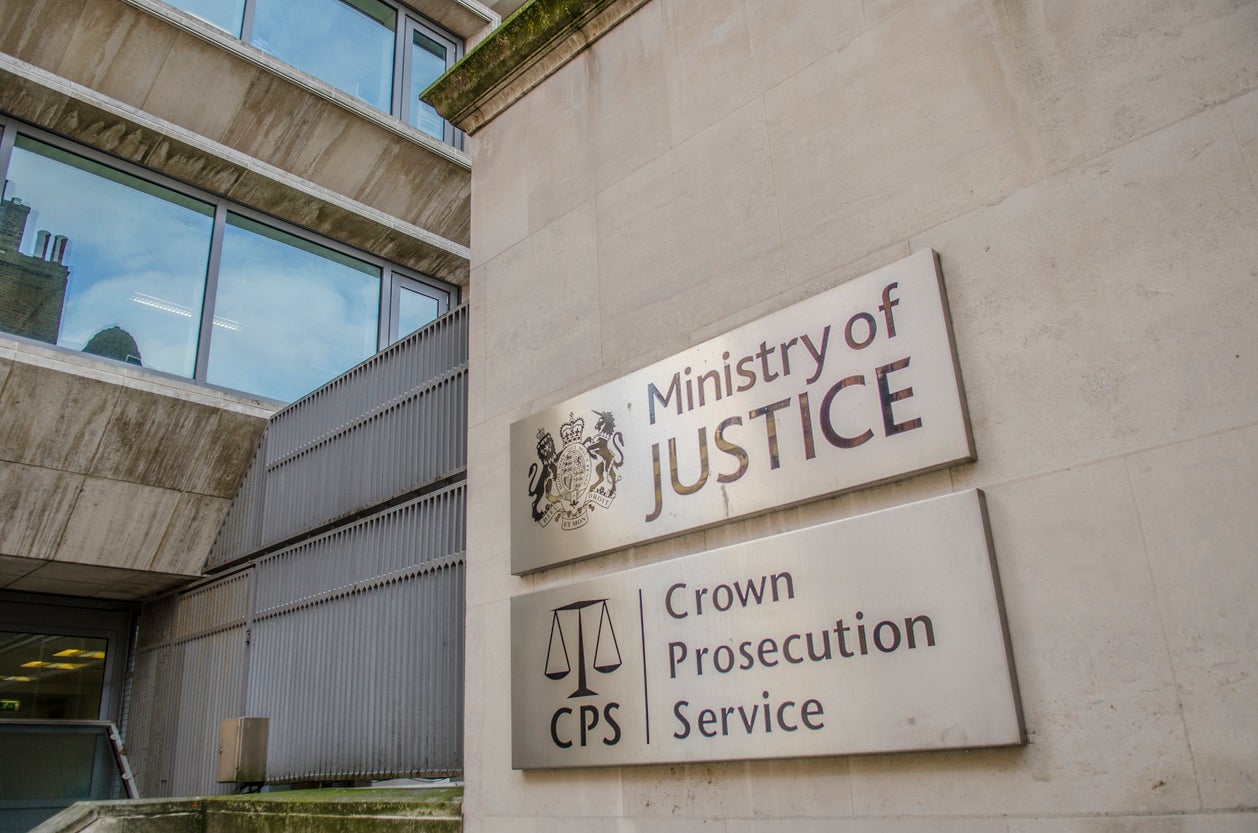Abusers are getting away with rape – and the Crown Prosecution Service is helping them do it
Yesterday, the CPS was accused of ‘systemic illegality’ in its approach to prosecuting rape cases – there is something very wrong with a criminal justice system that allows so many of those accused of serious sexual offences to walk free


Your support helps us to tell the story
From reproductive rights to climate change to Big Tech, The Independent is on the ground when the story is developing. Whether it's investigating the financials of Elon Musk's pro-Trump PAC or producing our latest documentary, 'The A Word', which shines a light on the American women fighting for reproductive rights, we know how important it is to parse out the facts from the messaging.
At such a critical moment in US history, we need reporters on the ground. Your donation allows us to keep sending journalists to speak to both sides of the story.
The Independent is trusted by Americans across the entire political spectrum. And unlike many other quality news outlets, we choose not to lock Americans out of our reporting and analysis with paywalls. We believe quality journalism should be available to everyone, paid for by those who can afford it.
Your support makes all the difference.Yesterday, a landmark court case began for victims of sexual violence. A judicial review, mounted against the Crown Prosecution Service (CPS) by the Centre for Women’s Justice (CWJ) and the End Violence Against Women (EVAW) coalition, heard that a change in the CPS’ approach to rape has resulted in far fewer prosecutions.
Every year since 2016-17, the number of rape prosecutions has dropped in England and Wales. Prosecutions are now at a record low. Reports of rape, however, have increased by nearly a third in the four years to March 2020. In the same period, prosecutions have more than halved, falling a massive 60 per cent to the lowest figure on record.
According to a report from The Guardian in 2018, CPS prosecutors were told in training sessions that they needed to put a “touch on the tiller” and weed “the weak cases out of the system”. The CPS has denied any such change in approach.
Campaigners are arguing that the CPS has failed to put forward cases where complainants had previously engaged in consensual sex with defendants, had been drinking or where their account of the incident contained inconsistencies.
This lazy, outdated and frankly insulting approach is preventing survivors from receiving the justice they deserve. As someone who has survived multiple experiences of sexual violence, beginning when I was a teenager, the alleged covert policy change by the CPS is nothing short of terrifying. It reiterates the message sent by the abuser – that we are not important, that our lives and our bodies and our experiences are worthless.
It doesn’t matter if someone had been drinking. It doesn’t matter what they were wearing or how late they were out. It doesn’t matter if they’d previously had sex with their abuser. Rape is always a crime. Or it should be.
The alleged changes in approach from the CPS have made rape less of a criminal offence, evidenced by the huge fall in prosecutions, and therefore of convictions. Abusers are getting away with rape, and the CPS is helping them do it.
Rape already had a much lower conviction rate compared to other crimes, and now too many cases are not even being brought to prosecution, meaning that there is no chance of conviction, and no justice for survivors.
In England and Wales alone, around 85,000 women and 12,000 men aged 16-59 experience rape or attempted rape every year. Every hour, 11 serious sexual offences occur. Only approximately 15 per cent report what has happened to the police. Sexual violence is a problem of epidemic proportions, and yet in 2019-20, only 1,439 suspects in cases where a rape had been alleged were convicted of rape or another crime. This is half the number recorded three years ago.
In the UK, we need an overhaul of social attitudes towards the survivors of rape and sexual violence. A disbelieving, victim-blaming and generally unpleasant approach to those who have suffered sexual trauma can be found in the police, in the CPS, in jury pools, in the media – the list goes on.
Without tackling myths and misconceptions around rape, we cannot hope to build a society where the crime is handled appropriately, with compassion for survivors at its heart. Factors like alcohol use, modes of dress, previous sexual encounters and sexual history should not be used as reasons to excuse rape.
It’s also important to remember that the effects of this pernicious crime do not end after the initial experience of violation and horror. Feelings of hopelessness and fear can seep into the very fabric of a survivor’s existence, haunting them in the form of nightmares, flashbacks and intrusive thoughts. The poison of this type of traumatic event can impact someone for the rest of their life.
Yesterday, the CPS was accused of “systemic illegality” in its approach to prosecuting rape cases. If the CPS is not championing the rights of survivors, no matter their personal circumstances, then it is on the side of the abuser. Survivors deserve better than to have their experiences dismissed because of a “bookmaker’s approach”, where the reaction of the jury is second-guessed.
Whatever the outcome of the judicial review, it’s clear that there is something very wrong with a criminal justice system that allows so many of those accused of serious sexual offences to walk free.



